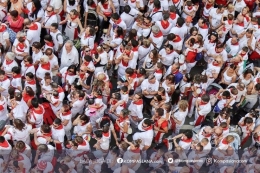Additionally, I hope to use my expertise to facilitate cross-cultural communication in professional and diplomatic contexts. In today’s interconnected world, effective communication across language and cultural boundaries is crucial. By organizing workshops, writing policy papers, and engaging in collaborative projects, I aim to promote linguistic inclusivity and global mutual understanding.
3. Experiences and Life Lessons
My journey toward studying linguistics has been shaped by a combination of academic and personal experiences. During my undergraduate studies, I actively participated in various student organizations that enhanced my leadership, communication, and organizational skills. These experiences taught me the importance of teamwork, effective communication, and attention to detail.
Life has also presented challenges that have shaped my resilience and adaptability. Balancing academic responsibilities with extracurricular commitments and part-time work during my undergraduate years was not easy. However, these experiences taught me the value of time management, perseverance, and a proactive mindset—qualities that will be invaluable as a graduate student at NUS.
4. Why the Admissions Committee Should Choose Me
I believe there are several reasons why the admissions committee of the Master of Arts in English Language and Linguistics program at NUS should select me. My academic background in English language and literature has provided me with a strong foundation in linguistic theory and analysis. My practical experiences, both as a student organization member and a seminar organizer, demonstrate my ability to apply theoretical knowledge in real-world contexts. These experiences have not only enriched my understanding of linguistics but also honed my interpersonal and problem-solving skills. I am deeply committed to the values of diversity, inclusivity, and global collaboration upheld by NUS. My experience working with individuals from diverse linguistic and cultural backgrounds has given me a global perspective that I wish to share with my peers.
However, I am also aware of my weaknesses. One of my main challenges is a tendency toward perfectionism. While this drives me to always strive for excellence, it sometimes leads to overthinking or focusing too much on minor details, affecting my efficiency. I have learned to overcome this weakness by adopting a more balanced approach and focusing on priorities. I believe that the supportive environment at NUS will help me continue to grow. With a combination of strengths and efforts to overcome my weaknesses, I am confident that I can make positive contributions to the academic community at NUS, whether through the ideas I share in class or collaborations with fellow students and faculty, And I hope to make all of that a reality.
Baca konten-konten menarik Kompasiana langsung dari smartphone kamu. Follow channel WhatsApp Kompasiana sekarang di sini: https://whatsapp.com/channel/0029VaYjYaL4Spk7WflFYJ2H







